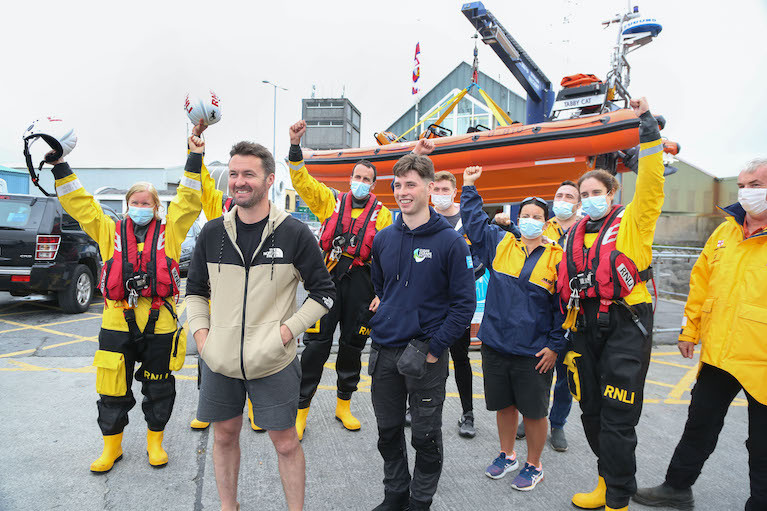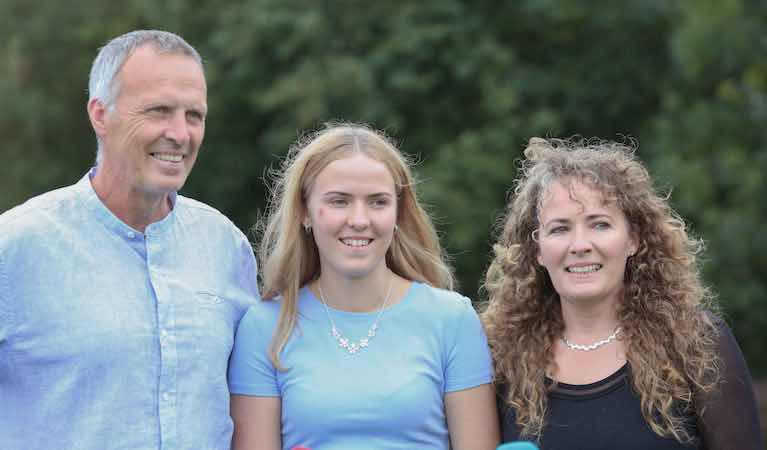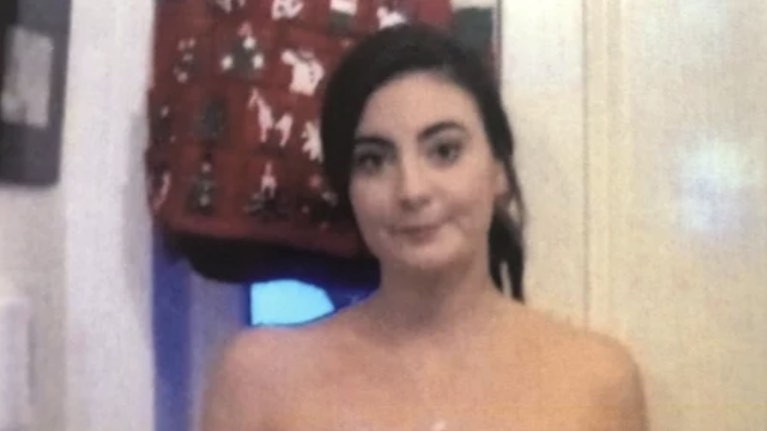Displaying items by tag: Paddleboarder
Dun Laoghaire Harbour RNLI rescued a paddleboarder who got into difficulty after he could not get back to shore on Bank Holiday Monday evening.
The lifeboat crew were paged following a report made to the Irish Coast Guard by a member of the public who had sighted the paddleboarder in the water about 150 metres from shore at Blackrock on Dublin Bay.
The inshore lifeboat was launched by the lifeboat crew of three at 6.37 pm just minutes after the crew had been paged.
Weather conditions at the time were quite rough with a squall causing strong offshore wind gusts, along with a changing outward tide and choppy waters. Visibility at the time was okay with the crew being able to locate the casualty quickly with the help of Dun Laoghaire Coastguard Unit from shore.
On arrival at 6.47 pm the lifeboat crew found the casualty exhausted having tried to paddle and swim back to shore. The crew quickly came alongside and brought the person onboard. They then carried out a casualty care assessment and observed that the casualty was showing signs of hyperthermia due to a long period in the cold sea.
The lifeboat transferred the person to land as quickly as possible at the Martello tower in Blackrock with help from the Dun Laoghaire Irish Coast Guard Unit. The casualty was then handed over to a waiting National Ambulance service crew for further medical care.
Speaking following the call-out, Alan Keville, Dun Laoghaire RNLI's inshore lifeboat Helm at the time said: ‘ The crew and I are very happy with the outcome of this evening’s callout having safely returned the casualty to shore and into the care of the National Ambulance service’
Galway Fishermen Receive Mayoral Tribute for Paddleboarder Rescue
The two Galway fishermen who rescued two paddleboarders in August have been honoured at a mayoral reception.
Mayor of Galway Mike Cubbard described Patrick Oliver and his son Morgan as “Claddagh royalty” when he presented them with a framed presentation scroll and a bronze model of a traditional Irish currach.
The presentation at a tightly controlled event in Salthill’s Leisureland was in honour of their achievements in saving the lives of Galway cousins Sara Feeney and Ellen Glynn in August.
Mr Cubbard said that "the rescue highlights the fantastic community spirit which exists in Galway as hundreds of people across the city and county offered their help with the search operation".
The cousins who were also recognised for their bravery survived 15 hours at sea after they were swept some 17 nautical miles across the bay and towards the Atlantic in mid August.
The fishermen have already been awarded the Afloat.ie National Seamanship Trophy for their efforts.
The Olivers recorded another rescue when they pulled a man from the river Corrib last month.
Galway TD Calls for Review of Paddleboard Rescue to be Made Public
The Irish Coast Guard has said it is reviewing the rescue of two young women who survived 15 hours at sea on paddleboards after they were swept across Galway Bay.
As The Irish Independent reports today, Independent Galway West TD Catherine Connolly has called for the findings of a review to be made public, with recommendations for future rescues.
Cousins Sara Feeney (23) and Ellen Glynn (17) were clinging to crab gear floats south of the Aran islands when they were found by Galway fishermen Patrick and Morgan Oliver on August 13th.
A major air-sea search had been tasked by Valentia Marine Rescue Sub-Centre after they failed to return from a short paddle on the air-filled boards off Furbo beach, some 12km west of Galway on the evening of August 12th.
The Olivers joined the search on Thursday morning, and headed straight for the Aran islands at the mouth of the bay, guessing that this was the most likely location in a north-easterly wind.
The two women, who had lashed their boards together and were wearing buoyancy aids but no wetsuits, had been carried 17 nautical miles from their original location at this point.
The Irish Coast Guard has confirmed that a review into the incident is “ongoing”, and is “in common with all Coast Guard search and rescue interventions”.
The Marine Casualty Investigation Board has said it is not conducting an inquiry.
However, Ms Connolly (Ind) has said while such a review by the Irish Coast Guard is “welcome as a first step”, it should be conducted “reasonably quickly”.
“I also believe that findings and recommendations should be made public so that lessons can be learned,” Ms Connolly said.
She paid tribute to the Oliver family, originally from the Claddagh, for their response, and to all those who had participated in the extensive search on sea, in the air and on both sides of Galway Bay.
Read The Irish Independent report here
Galway Paddleboarder Issues Water Safety Appeal & Pays Tribute to Those Involved in Sea Rescue
Sara Feeney, the Galway woman who survived 15 hours at sea on paddleboards with her cousin Ellen Glynn, has paid a further tribute to those involved in rescue at sea.
In an interview with RTE Radio 1 Countrywide, she has also appealed to water users to wear a buoyancy aid, to always have a means of communication and to carry a light.
“We owe it to these people to do everything we can to keep ourselves safe,” she said, describing all those involved in rescue on water as “heroes”.
“Lifejackets are a must, there’s no question about it..and even things like a light,” she said. “It is very easy to have a waterproof pouch with you where you can have these things,” she said.
Vessels & a helicopter close by
Ms Feeney described her overnight ordeal in heavy rain, thunder and lightning with her cousin, and how there were times when it felt as if there were vessels and a helicopter close by.
She also described her own concern when they hadn’t been found after being carried by north-easterly winds across the bay from Furbo to south of the Aran island of Inis Oírr – a distance of 17 nautical miles.
Floats attached to crab gear
The floats attached to crab gear owned by fisherman Bertie Donohue off Inis Oírr had probably “saved them” from being swept out into the Atlantic, but she said she also had a sense that perhaps the search pattern had changed to a shore search.
“It was terrifying to have those thoughts...,” she said, explaining how she feared their those searching for them had “assumed a certain outcome at this point”.
Speaking about their ability to stay calm, she said that being together was crucial.
“I don’t know if Ellen’s age I would have had or had seen so many horror stories about water...Ellen probably was and had total understanding of what was going on, but neither of us really communicated that to each other... we didn’t really say that out loud at the time,” she said.
“If we had started talking like that, it was just another level of hopelessness we didn’t need,” she said.
“I wouldn’t have been able to hold it together if she [Ellen] had been in a state of panic,” she said, describing their unspoken joint decision to keep calm.
A “huge thing on her mind” during the night, particularly after each vessel and helicopter flight which didn’t see them, was that “nobody gets out of this situation...”
“Lots of people don’t get the ending that we did in that situation..so that’s definitely on your mind the whole time,” she said.
Patrick and Morgan Oliver
Patrick and Morgan Oliver of the Claddagh seafaring family, who rescued them in their seven-metre catamaran Johnny Ó, were “wonderful”, she said.
“When you are out there you are thinking that all of these people are out there looking, and you have it in your head that if they do find you ...you are going to be in some sort of trouble...the stress and everything that you cause people...but they were just so kind, the instant we were on the boat just feeling so safe,” she said.
“The fact that there was such a happy ending to this is something we can take from it,” Ms Feeney said.
“These people who go out and take time out of their own lives without hesitating and put their own safety at risk to look for people that they don’t know...are heroes.”
“Everyone we met along the way was so kind and helpful...it was lovely,” she said.
Hear the extended RTE Radio Countrywide interview here


























































